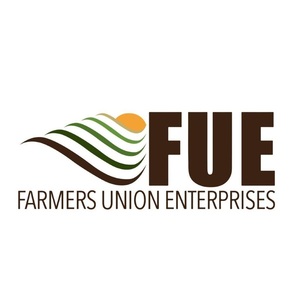Gasolinegate: Decades of flawed emission reports endanger public

July 3, 2019
BY Farmers Union Enterprises
The 263 million gasoline vehicles on American roadways are emitting significantly more harmful emissions than being reported, and the U.S. EPA is ignoring the dangers of toxic compounds in gasoline, according to a new report released this week.
Simply titled Gasolinegate, the report (and public service announcement video) was produced by Farmers Union Enterprises and according to FUE Chairman Doug Sombke, it chronicles three decades of EPA collusion with the industry they are responsible for regulating, which FUE believes resulted in harming the public they are sworn to protect. Emails obtained through the Freedom of Information Act provide a history of what they call inaccurate testing of fuels and calculations of emissions. The result, FUE says, is much greater risk to the public than reported.
Despite dozens of reputable and peer reviewed studies confirming that ultrafine toxic particulates are one of the most serious public health threats in urban areas, and have been linked to pre-term births, IQ loss, and asthma, not enough has been done, according to Sombke. Dieselgate was about the public health impact of 500,000 cars emitting more emissions than the public was told, and the cover up by Volkswagen by using on board computers as a “defeat device”. Gasolinegate is about 263 million cars and light duty trucks emitting more than reported, particularly more toxic/carcinogenic emissions—for decades. Ninety percent of urban particulate (PM) emissions come from mobile sources, not power plants, and more than 80 percent of mobile source PM emissions come from gasoline powered vehicles, not diesel.
Farmers Union Enterprises took on this project to dispel the myths and misinformation that has kept clean burning ethanol out of the market, according to Sombke. “In their relentless effort to block competition, the monopoly of big oil extends to a revolving door policy of the petroleum industry infiltrating EPA, Congress, and other Federal agencies. Our research chronicles a consistent pattern of EPA always siding with the petroleum industry in its rulings and interpretations, failing to recognize Congressional intent and failing to act in the public interest,” said Sombke.
Advertisement
Advertisement
“All we are asking is to make gasoline safe for the public and to open the door to alternative fuels that meet a wide range of public policy goals. EPA has the authority and responsibility to protect public health and has to break the stranglehold of big oil to do its job”.
Related research and information: Safe Gasoline Public Education and Consumer Awareness Campaign Library/Website
Advertisement
Advertisement
Related Stories
The USDA has announced it will delay opening the first quarterly grant application window for FY 2026 REAP funding. The agency cited both an application backlog and the need to disincentivize solar projects as reasons for the delay.
Neste and DHL Express have strengthened their collaboration with the supply of 7,400 tons (9.5 million liters) of neat, i.e. unblended, Neste MY Sustainable Aviation Fuel to DHL Express at Singapore Changi Airport starting July 2025.
CoBank’s latest quarterly research report, released July 10, highlights current uncertainty around the implementation of three biofuel policies, RFS RVOs, small refinery exemptions (SREs) and the 45Z clean fuels production tax credit.
The U.S. Energy Information Administration maintained its forecast for 2025 and 2026 biodiesel, renewable diesel and sustainable aviation fuel (SAF) production in its latest Short-Term Energy Outlook, released July 8.
XCF Global Inc. on July 10 shared its strategic plan to invest close to $1 billion in developing a network of SAF production facilities, expanding its U.S. footprint, and advancing its international growth strategy.
Upcoming Events










